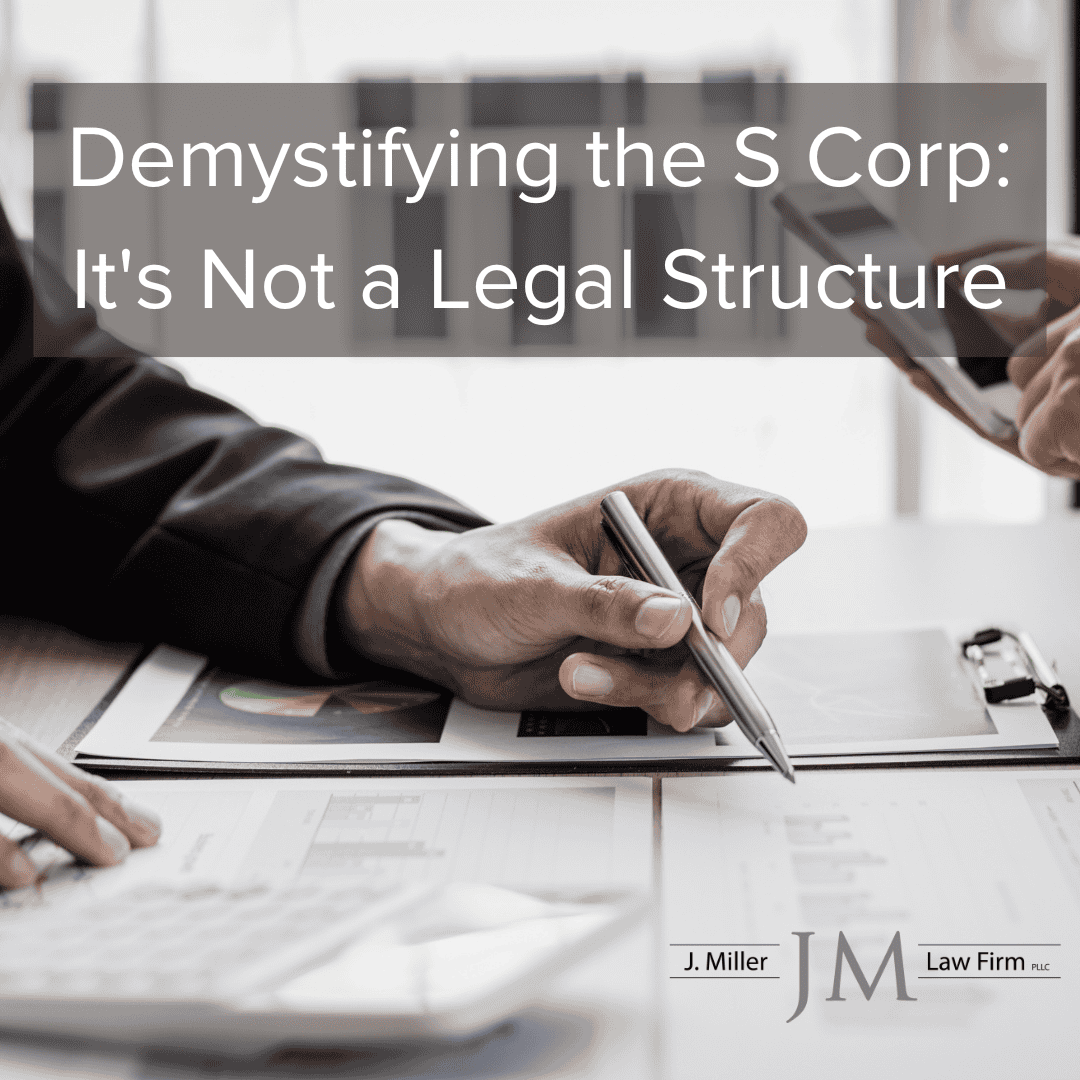
23 Apr Demystifying the S Corp: It’s Not a Legal Structure
In the realm of business entities, the S Corporation (S Corp) often occupies a unique space. Many entrepreneurs and small business owners are drawn to its tax benefits and operational flexibility. However, there’s a common misconception that the S Corp is a distinct legal structure in itself. In reality, it’s not. Let’s delve into why.
Understanding Legal Structures:
Before we dissect the S Corp, let’s clarify what constitutes a legal structure for a business. Legal structures define how a business is organized, managed, and taxed. They include entities like partnerships, limited liability companies (LLCs), and corporations. Legal structures are registered with the Secretary of State and other government agencies, as necessary. Once filed, the Secretary of State requires an annual renewal of your business. Each legal structure comes with its own set of advantages, drawbacks, and compliance requirements. For instance, a corporation offers limited liability protection to its shareholders but is subject to double taxation.
The S Corp: A Tax Election, Not a Legal Entity:
Here’s the crux of the matter: an S Corporation is not a distinct legal structure; rather, it’s a tax designation. When a corporation elects to be treated as an S Corp by the Internal Revenue Service (IRS), it undergoes a specific tax treatment. It does not change the legal structure of the business. For example – if you are an LLC with an S-corp designation – you are still an LLC. You are still subject to the same requirements, including renewing your LLC with the Secretary of State every year and following good practices such as having an operating agreement, meetings, and maintaining proper records. You also now have corporate transparency act (beneficial owner reporting) requirements! That is the subject of an earlier blog post, and the reporting forms can be accessed from the Oklahoma Secretary of State website.
Why Clarity Matters:
Understanding the true nature of the S Corp is crucial for entrepreneurs and business owners. While its tax benefits can be enticing, it’s essential to recognize that opting for S Corp status entails specific eligibility criteria and ongoing compliance obligations. Furthermore, the decision to elect S Corp status should align with the long-term goals and structure of the business. Consulting with a qualified attorney or tax advisor can provide valuable insights into whether S Corp status is the right fit and ensure compliance with relevant laws and regulations.
Conclusion:
In summary, the S Corporation is not a standalone legal structure but rather a tax election made by qualifying corporations. While it offers unique tax advantages, it’s essential to distinguish between its tax status and legal framework. By gaining clarity on the nuances of the S Corp, entrepreneurs can make informed decisions that align with their business objectives and compliance needs.
#businessattorney #llc #corporation



